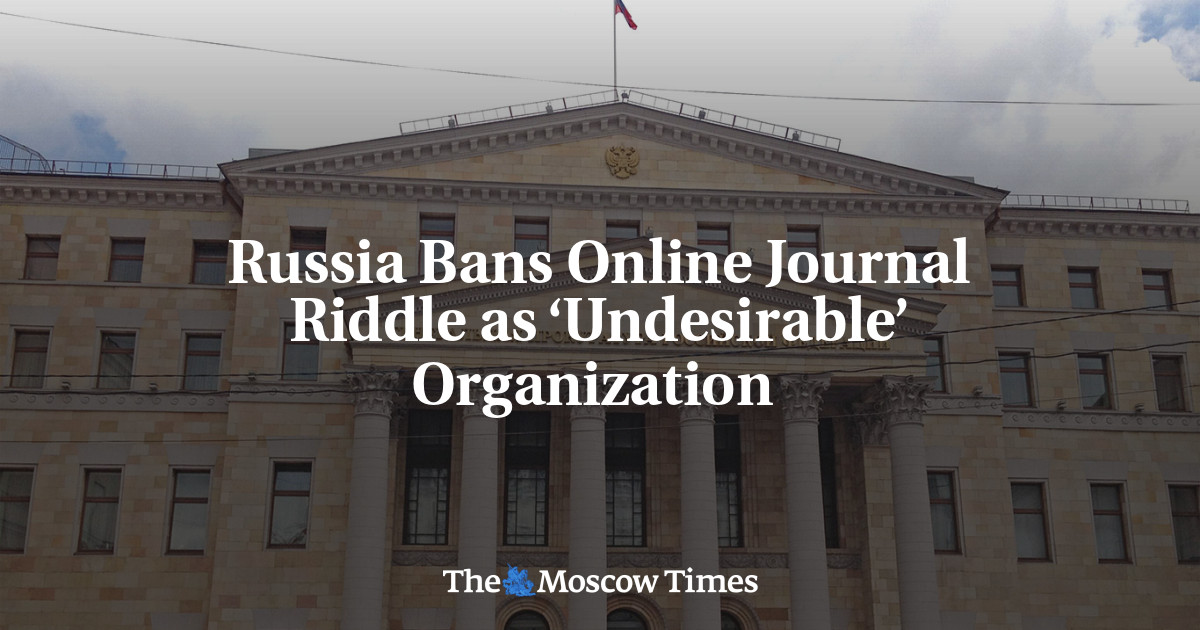
The office of Russia’s Prosecutor General officially designated the online journal Riddle as an “undesirable” organization on Tuesday, accusing it of “posing a threat to the security” of the Russian Federation.
Under Russian law an international NGO can be declared “undesirable” for “posing a threat to the constitutional order of the Russian Federation, the defense capability of the country or the state security.”
Anybody in Russia deemed to have cooperated with an “undesirable” organization could face a steep fine or even a jail term.
Riddle, which is based in Lithuania, covers Russian domestic and foreign policy, and has written widely about the war.
“Under military censorship, it was expected — we attribute this decision to our articles and analyses of the war,” Anton Barbashin, Riddle’s editorial director, told The Moscow Times.
“We are definitely not going to cease our activities, most of our authors and staff are located outside of Russia,” Barbashin said, adding that the organization was currently consulting with its lawyers.
In Russia’s latest effort to crack down on reporting that contradicts Kremlin narratives, a parliamentary commission investigating alleged “foreign interference in Russia’s internal affairs” earlier this month proposed recognizing dozens of international NGOs as “extremist” or “undesirable” organizations.
“All these structures are controlled by the authorities from NATO member states and are aimed at undermining our country from within,” commission head Vasily Piskarev claimed.
More than 60 organizations, including a number of media outlets focused on exposing fraud and corruption in Russia, have been declared “undesirable” by the Russian authorities to date.
Earlier this year, Kremlin critic Andrei Pivovarov, the former head of pro-democracy group Open Russia — a group that was itself declared “undesirable” in 2017 — was sentenced to four years in prison after being found guilty of “undesirable” activities.